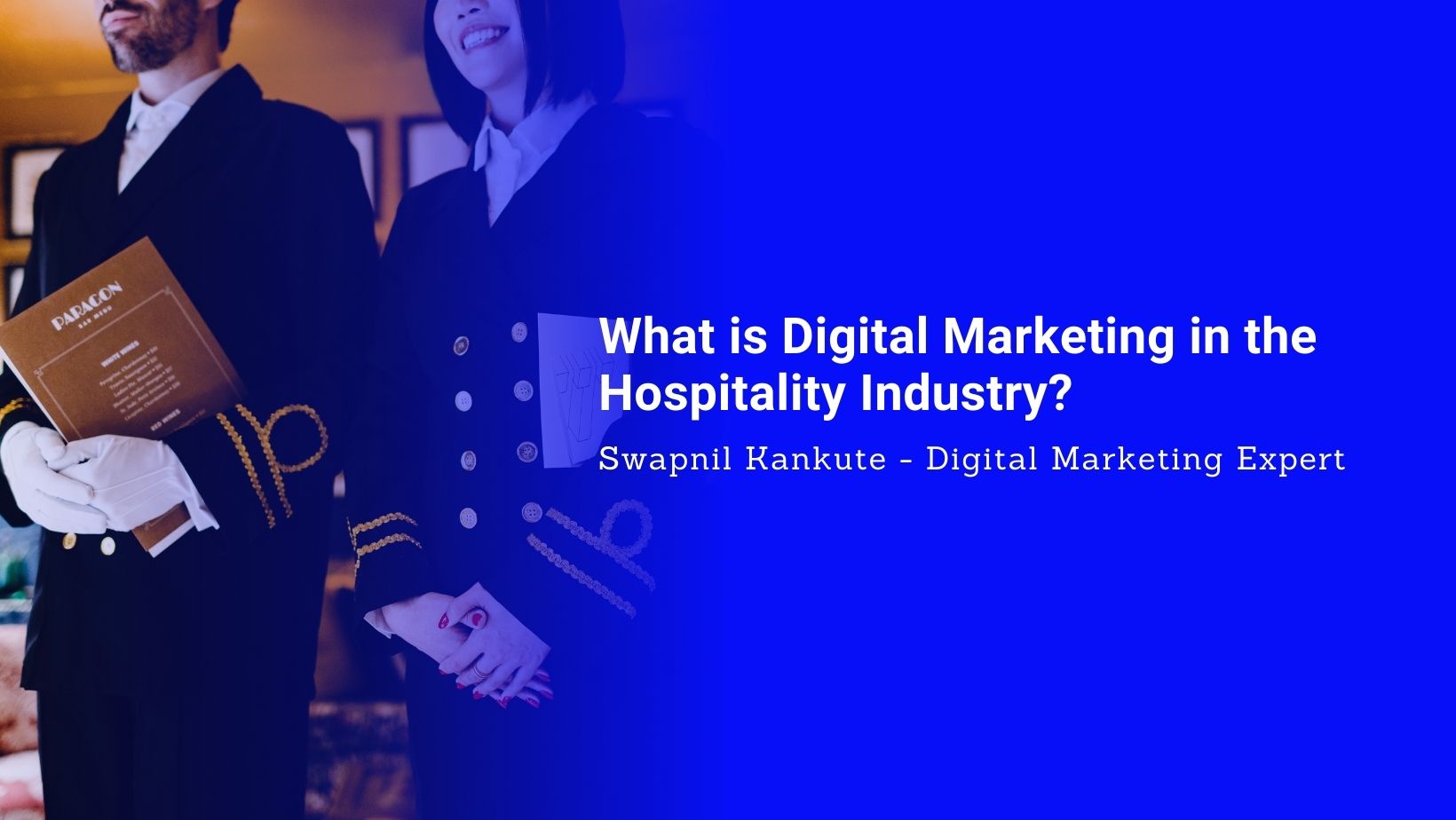In today’s fast-paced digital world, the hospitality industry is undergoing a significant transformation. Digital marketing has become an essential tool for hotels, resorts, and other hospitality businesses to enhance their visibility, engage with guests, and drive bookings. This blog will explore what digital marketing is, its importance in the hospitality sector, and effective strategies that can be employed to boost business performance.
Table of Contents
ToggleUnderstanding Digital Marketing
Digital marketing encompasses all marketing efforts that utilize the internet and electronic devices. This includes a variety of channels such as search engines, social media, email, and websites, aimed at connecting businesses with their target audiences. In the hospitality industry, digital marketing allows hotels and resorts to reach potential guests more effectively and efficiently than traditional marketing methods.
The Importance of Digital Marketing in Hospitality
The hospitality industry is unique in its need for a strong online presence. Here are several reasons why digital marketing is crucial:
- Changing Consumer Behavior: Travelers are increasingly turning to the internet to research destinations, accommodations, and travel options. A strong digital presence ensures your business can be easily found by potential guests.
- Increased Competition: With the rise of online travel agencies (OTAs) and vacation rental platforms, competition has intensified. Effective digital marketing strategies can help your business stand out in a crowded market.
- Cost-Effective Marketing: Digital marketing often provides a better return on investment (ROI) compared to traditional marketing methods. Techniques such as pay-per-click (PPC) advertising allow you to reach your target audience without a hefty budget.
- Data-Driven Decisions: Digital marketing offers valuable analytics that can help hospitality businesses understand customer preferences and behavior, leading to more informed marketing decisions.
- Customer Engagement: Engaging with customers through social media, email newsletters, and online reviews fosters loyalty and encourages repeat business.
Key Components of Digital Marketing in Hospitality
1. Search Engine Optimization (SEO)
SEO is the practice of optimizing your website to rank higher in search engine results pages (SERPs). For hospitality businesses, this means ensuring that potential guests can easily find your hotel or resort when they search for relevant keywords.
- Keyword Research: Identify and use keywords that potential guests are searching for, such as “luxury hotel in [destination]” or “family-friendly resorts in [location].”
- On-Page SEO: Optimize your website content, titles, and meta descriptions to include these keywords, improving visibility.
- Local SEO: Claim and optimize your Google My Business listing to enhance your visibility in local searches.
2. Social Media Marketing
Social media platforms like Facebook, Instagram, and Twitter play a significant role in hospitality marketing. They allow businesses to connect with potential guests, share updates, and engage with customers.
- Visual Content: Use high-quality images and videos to showcase your property and the experiences guests can enjoy.
- Engagement: Respond to comments and messages promptly to foster a sense of community and build relationships with potential guests.
- Promotions and Contests: Run social media campaigns, promotions, or contests to encourage user-generated content and increase engagement.
3. Content Marketing
Content marketing involves creating valuable content that attracts and engages your target audience. For hospitality businesses, this can include:
- Blogging: Write informative blog posts about travel tips, local attractions, or culinary experiences at your hotel.
- Video Marketing: Create videos showcasing your property, guest testimonials, or local experiences.
- E-books and Guides: Offer downloadable guides on topics such as “The Ultimate Travel Guide to [Destination]” in exchange for email sign-ups.
4. Email Marketing
Email marketing remains a powerful tool for engaging with past and potential guests. It allows you to nurture relationships and drive bookings.
- Personalization: Segment your email list to send targeted messages based on customer preferences and behaviors.
- Newsletters: Share updates, promotions, and engaging content to keep your audience informed and interested.
- Automated Campaigns: Set up automated email sequences to welcome new subscribers or follow up with guests after their stay.
5. Pay-Per-Click (PPC) Advertising
PPC advertising allows hospitality businesses to display ads on search engines and social media platforms, targeting specific keywords or demographics.
- Google Ads: Create targeted ads that appear in search results when potential guests search for relevant terms.
- Remarketing: Use remarketing strategies to re-engage visitors who have previously interacted with your website.
6. Online Reputation Management
Managing your online reputation is crucial in the hospitality industry, where guest reviews can significantly influence booking decisions.
- Encourage Reviews: Ask satisfied guests to leave positive reviews on platforms like Google, TripAdvisor, and Yelp.
- Respond to Feedback: Address negative reviews professionally and promptly to demonstrate your commitment to guest satisfaction.
- Monitor Mentions: Use tools to monitor online mentions of your hotel and respond as needed.
Best Practices for Digital Marketing in Hospitality
1. Understand Your Audience
Identify and understand your target audience. Are you catering to business travelers, families, or luxury seekers? Tailor your marketing strategies to address their specific needs and preferences.
2. Invest in High-Quality Visuals
In the hospitality industry, visuals matter. Invest in professional photography and videography to showcase your property and the experiences guests can enjoy.
3. Optimize for Mobile
With many travelers using mobile devices to research and book accommodations, ensure your website is mobile-friendly and easy to navigate.
4. Track and Analyze Performance
Utilize analytics tools to track the performance of your digital marketing campaigns. Analyze key metrics such as website traffic, conversion rates, and return on investment to optimize your strategies.
5. Stay Updated with Industry Trends
The digital landscape is constantly evolving. Stay informed about the latest trends in digital marketing and the hospitality industry to remain competitive.
Conclusion
Digital marketing is no longer optional for the hospitality industry; it is a necessity. By leveraging various digital marketing strategies, hospitality businesses can enhance their visibility, engage with guests, and drive bookings. From optimizing your website for SEO to utilizing social media and email marketing, the right digital marketing approach can significantly impact your business’s success.
As a digital marketing expert with over 12 years of experience, I have witnessed firsthand the power of digital marketing in transforming hospitality businesses. Embrace these strategies to unlock your hotel’s full potential and achieve remarkable growth in this dynamic industry.



